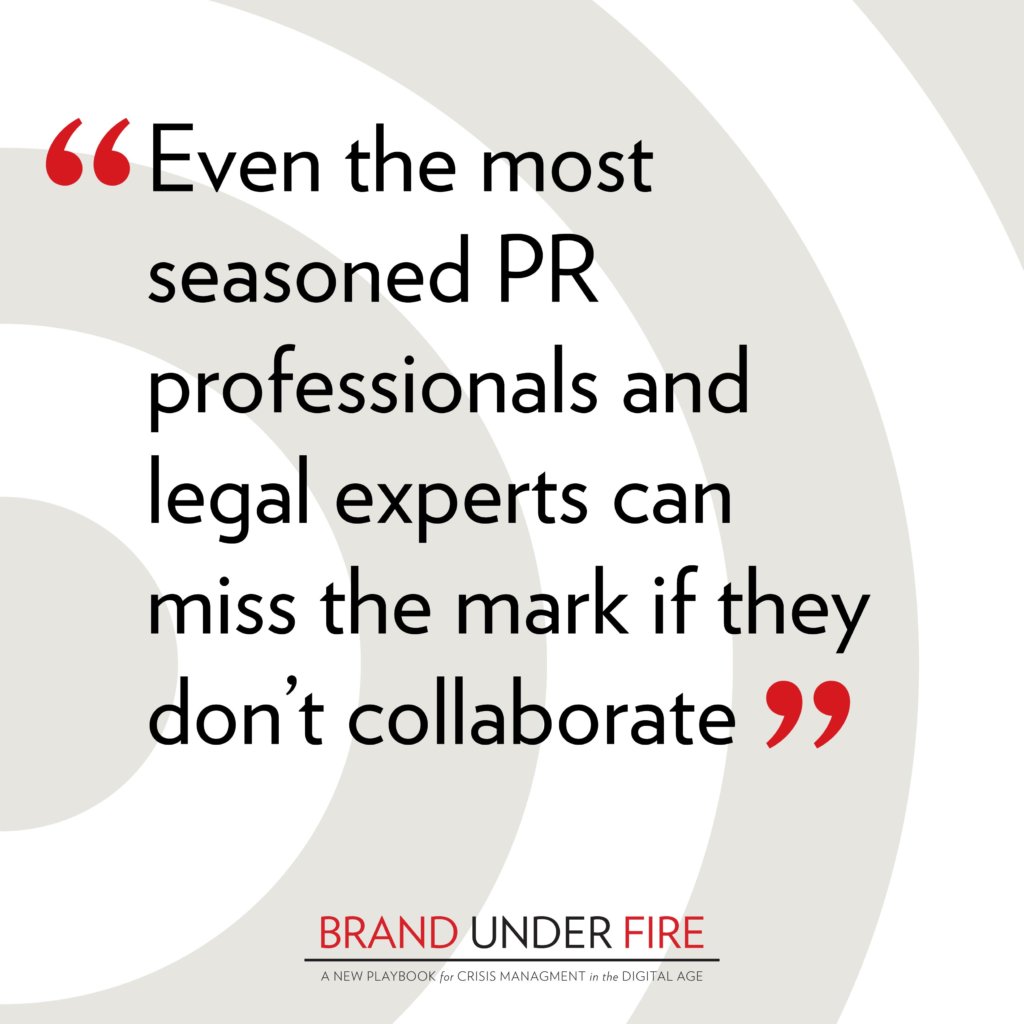In a crisis situation, the tension between communication and legal advisors is often at the expense of client needs.
This tension can lead to conditional apologies and non-denial denials. More dangerously, it can lead to over-doctored, watered-down statements that reek of spin.
Perhaps most memorably, we saw this in Ryan Lochte’s public statement and apology following the 2016 Summer Olympics in Brazil. His apology was widely mocked in the media for failing to say what, exactly, he was apologizing for. The reference to his false statements as “over-exaggerations” and “carelessness” and mentioning that “its traumatic to be out late with your friends in a foreign country” made at least one thing clear: there was tension between his legal and communications teams.
My experience in the crisis situation room has proven that even the most seasoned PR professionals and legal experts can miss the mark if they don’t collaborate. It’s important to remember that the legal team is not the department of ‘no,’ and while there is no simple formula for balancing reputational and legal risk, viewing the legal team as your partners on the frontline in upholding the values of the organization is an important first step in navigating any issue.
Recently, former cybercrime prosecutor Anand Raj Shah – now a cybersecurity counsel at Drinker Biddle – and I got a chance to work together in response to a client data breach. We learned that we share a belief in collaboration between legal and communications counsel. We chatted about Anand’s experience working with PR teams in the wake of client emergencies and offered key learnings from the legal perspective.
During the conversation, Anand reaffirmed the critical role the comms team plays, serving as a gut check when determining how reputation will be protected or restored based on the needs and expectations of the clients’ audience. He pointed out that the legal team in a data breach often serves as a “data traffic light,” helping direct what to do with new information as it becomes available in an investigation. He stressed that legal counsel in any crisis is not a one-way street – it’s a team sport requiring coordination with each stakeholder, especially the communications team.
We also shared a sentiment around developing crisis preparedness by stressing the importance of establishing a legal-comms partnership before the crisis hits and you’re facing the public court of opinion. This can create the ‘same team’ mentality and – perhaps most important – when the comms team is serving at the direction of counsel, the attorney-client privilege may be extended to the comms experts to enable deeper and more meaningful collaboration with clients.
While we often get the call after the crisis has already occurred, I cannot stress enough to leadership and the legal teams that represent them, the importance of crisis preparedness. Developing a comprehensive crisis plan must include a pre-organized team of legal and communications counsel, and a detailed protocol for controlling information in the situation room. Pre-determining which players are privy to what and when can save all parties involved a lot of sweat when things start to heat up.
Based on my conversation with Anand following our client’s data breach, here are a few best practices for brands looking to establish and/or strengthen their legal-comms coordination prior to any type of crisis – from Facebook and Cambridge Analytica to Michigan State and Larry Nassar:
-
Commit to open and constant communications between both the legal and PR teams – pre-plan and meaningfully participate in check-ins;
-
Ensure both parts of the team share the same priorities and hold them in the same importance to uphold the organization’s values;
-
Employ constant digital listening and social monitoring for real-time communications calibration, as well as risk and reputation management; and
-
Understand the limits and structure of attorney-client privilege, including where both legal and communications boundaries land.
Too often, legal experts and company executives are left butting heads in the midst of crisis, juggling competing needs from diverse stakeholders and business operations with a focus on limiting liability. Navigating priorities can be especially challenging in the wake of a crisis, but understanding all the audiences both legal and comms experts must answer to – from the c-suite down to the boots-on-the-ground – is an important step in crisis preparedness.
No one wants to imagine the worst-case scenario becoming reality; however, taking simple steps to identify vulnerabilities and develop a crisis plan can lead to a cohesive legal-comms front, and ultimately prevent a crisis among the crisis counselors.


